7 signs your rabbit need a vet visit: The 2026 Life-Saving Guide
Heads up: This post contains affiliate links. If you buy something through them, I earn a small commission at no extra cost to you. It keeps the lights on and the kibble bowl full. Read the full boring legal stuff here.
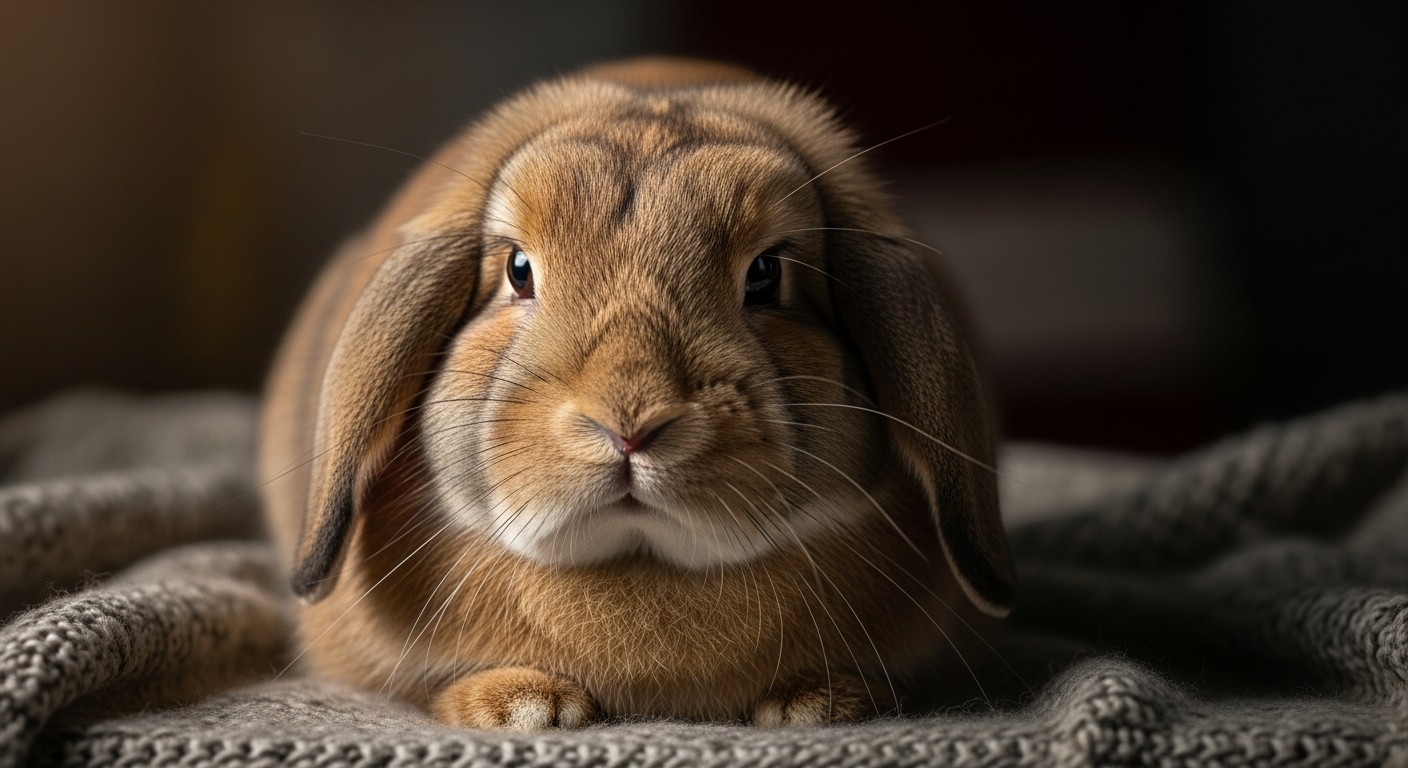
Rabbits are masters of deception, evolutionary experts at looking perfectly fine right up until the moment they aren't.
As prey animals, their biological directive is simple: never show weakness, or a fox eats you. The grim reality of 7 signs your rabbit need a vet visit is that by the time an average owner notices something is wrong, the rabbit has often been suffering for hours, if not days. Here's what twenty years of cleaning hutches, volunteering in overwhelmed shelters, and paying exorbitant emergency vet bills has taught me about spotting the subtle red flags before it’s too late.
Most pet stores will sell you a bunny with a smile, a bag of colorful (and mostly junk) food, and zero information on how fragile these creatures actually are. They don't tell you that a rabbit’s digestive system is a biological ticking time bomb that requires constant motion to prevent fatal shutdown. I’ve seen seasoned owners miss these cues because they were looking for drama, crying, limping, bleeding, when they should have been looking for silence.
If you want your rabbit to survive past its third birthday, you have to stop thinking like a human and start thinking like a paranoid prey animal. The difference between a $100 checkup and a $2,000 emergency surgery, or a dead pet, usually comes down to how fast you react.
Understanding the Prey Mask: Why They Lie to You
To understand why rabbits hide their illnesses so effectively, you have to look at their place in the food chain. They are the bottom. Everything eats them. If a wild rabbit shows a limp or winces in pain, a predator targets it immediately. Consequently, your domestic house rabbit has retained this intense instinct to mask pain at all costs.
This "stoicism" is the single biggest killer of pet rabbits. I’ve had rabbits with broken bones who still tried to hop over to their food bowl because the instinct to blend in is stronger than the sensation of pain. When a rabbit finally stops masking, when they look sick to you, it means the pain has overwhelmed millions of years of evolutionary programming. That is not the start of the illness; that is the crisis point.
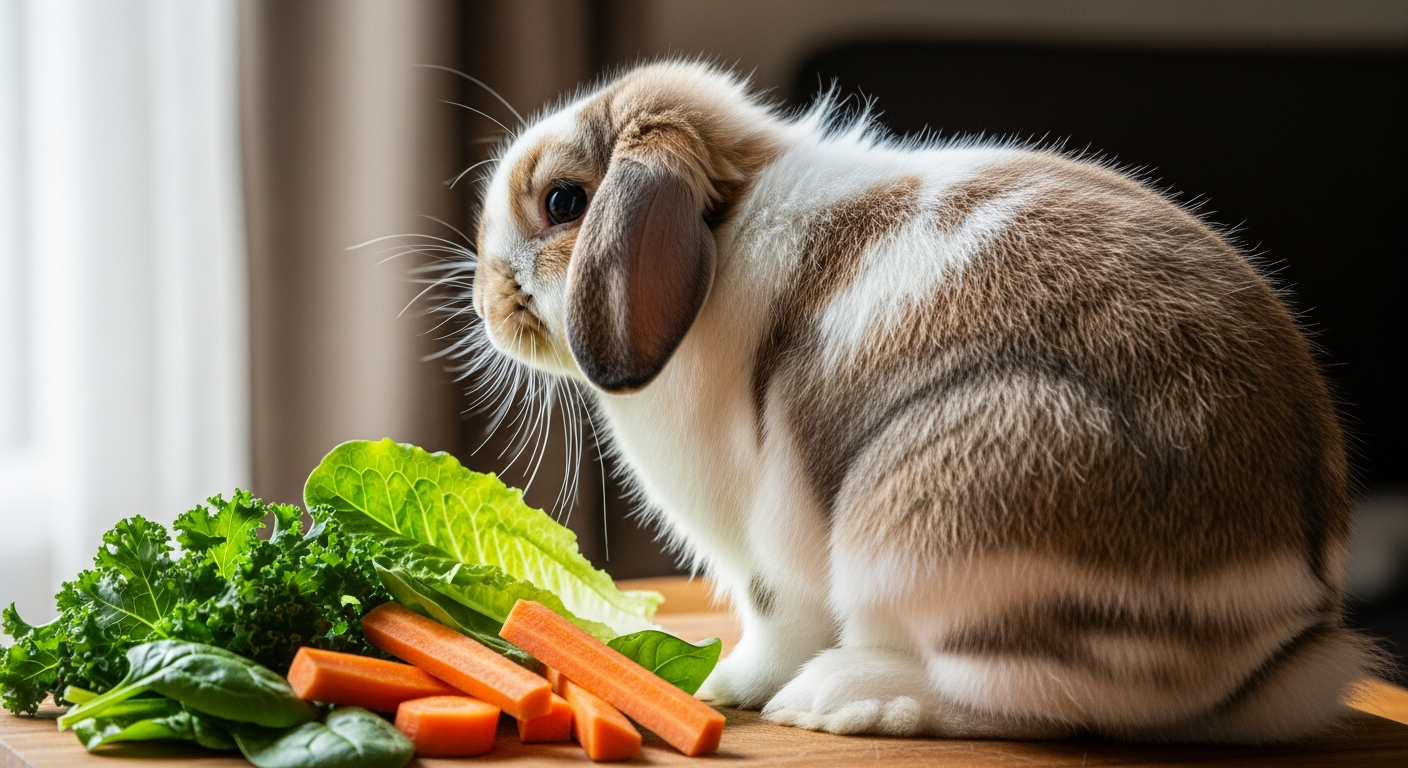
The GI Stasis Nightmare
If you take nothing else from this, understand Gastrointestinal (GI) Stasis. This is the condition that keeps rabbit owners up at night.
- Reality: A rabbit’s gut must move constantly. If they stop eating or get stressed, the gut stops.
- Common Misconception: "He's just not hungry right now, he'll eat later."
- What Actually Happens: Bacteria in the gut die, releasing gas. The gas causes bloating and immense pain. The pain causes the rabbit to not eat. The starvation causes liver failure. It is a death spiral that can kill in 24 hours.
The Metabolic Furnace
Rabbits run on a high-speed metabolism. They aren't like snakes that can go weeks without a meal, or even dogs that can skip dinner with no issue. A rabbit that hasn't eaten in 12 hours is in a metabolic emergency. Their blood sugar drops, their body temperature plummets, and their organs begin to shut down. I have learned through panic-inducing experiences that "waiting until morning" is rarely an option with these animals.
7 Signs Your Rabbit Need a Vet Visit: The Critical List
You clicked this because you’re worried, or you want to be prepared. Good. Paranoia saves lives. These aren't just "suggestions", these are the flashing neon lights that indicate your rabbit's health is crashing.
- Sign #1 - Refusal of Food (Anorexia): This is the big one. If your rabbit turns its nose up at a favorite treat, a piece of banana, a pellet, or fresh herbs—you are in the danger zone. I don't mean they are eating slowly; I mean they refuse it entirely. In my experience, a rabbit that refuses food for more than 8-10 hours is already in early stasis. This isn't "being picky." This is a medical emergency requiring immediate intervention.
- Sign #2 - Absence or Change in Feces: You should become obsessed with your rabbit's poop. It sounds gross, but it's the primary health indicator. You are looking for plentiful, round, golden-brown "Cocoa Puffs." If the poop becomes tiny, misshapen, strung together with fur, or stops entirely, the gut is shutting down. No poop for 12 hours is a critical emergency. I've spent more time analyzing fecal consistency than I care to admit, but catching a decrease in size early can save you thousands in vet bills.
- Sign #3 - Loud Tooth Grinding (Bruxism): Rabbits do "purr" by lightly chattering their teeth when happy. This is different. Pain grinding is loud, rhythmic, and sounds like two stones scraping together. It’s a sound that makes your skin crawl once you recognize it. It usually means severe abdominal pain or dental spurs cutting into their cheek. If you hear this crunching sound from across the room, your rabbit is in agony.
- Sign #4 - Abnormal Hiding or Posture: You know your rabbit's routine. If they usually greet you at the cage door but are now pressed into the back corner, facing the wall, something is wrong. Watch for the "meatloaf" position where they look uncomfortable, shifting weight, or pressing their belly into the floor. This "hunched" posture is a classic sign of gas pain. If they refuse to move even when prodded, get the carrier ready.
- Sign #5 - Respiratory Noise or Discharge: Rabbits are obligate nasal breathers; they cannot breathe through their mouths. If you see your rabbit "mouth breathing," they are suffocating. More commonly, you'll see "snuffles", white or yellow discharge from the nose or matted fur on the inside of their front paws (from wiping their nose). Respiratory infections in rabbits are stubborn, aggressive, and can turn into pneumonia rapidly. A sneeze here or there is dust; chronic wetness is a vet visit.
- Sign #6 - Head Tilt (Torticollis): One minute they are fine; the next, their head is twisted 90 degrees to the side and their eyes are darting rapidly (nystagmus). This is terrifying to witness. It’s usually caused by an inner ear infection or a parasite called E. cuniculi. While it looks like a stroke, it’s often treatable if caught immediately. However, the vertigo is so bad the rabbit will roll uncontrollably, preventing them from eating or drinking.
- Sign #7 - Cold Ears (Hypothermia): A rabbit in shock, usually from pain or GI stasis, will pull blood away from its extremities to keep its organs alive. Feel your rabbit's ears. They should be warm. If they feel ice-cold to the touch, your rabbit's body temperature is dropping dangerously low (below 100°F). This is a sign of systemic shock. You cannot just "warm them up" and hope for the best; you need to get to a vet to treat the underlying cause immediately.
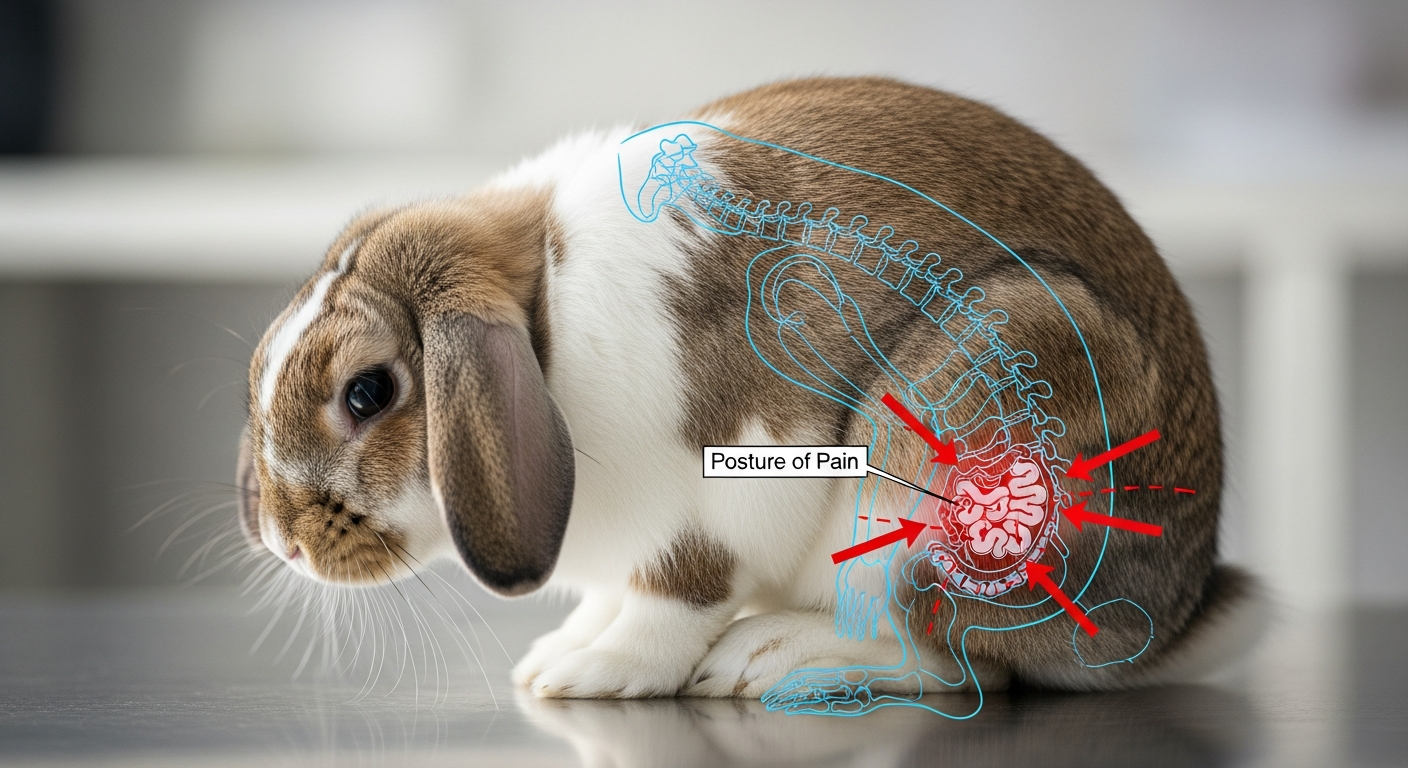
Immediate Solutions and Triage
Disclaimer: I am an experienced animal caregiver and shelter volunteer, not a veterinarian. The advice below is based on years of managing rabbit health crises in the field. However, if your rabbit is showing the signs above, you need a professional. I cannot diagnose your pet. Use this information to stabilize them on the way to the clinic, not as a replacement for one.
When the alarm bells ring, panic is your enemy. You need a plan. I keep an "Emergency Go-Bag" ready at all times because rabbits never get sick at 2 PM on a Tuesday; it’s always 11 PM on a Sunday holiday.
The "Force Feed" Protocol
If your rabbit has stopped eating (and you have confirmed there is no intestinal blockage via a vet consultation), you must keep their gut moving manually. This involves syringe-feeding a high-fiber recovery food.
- Step 1 - Prepare the Sludge: You need a specialized recovery food. This isn't optional. When my rabbits stop eating, I immediately reach for Oxbow Critical Care Herbivore Support ↗ because it's the industry standard for restarting a stalled gut, loaded with the specific fiber structure they need to survive. Mix it with warm water until it's the consistency of ketchup. Cost: $15-25 (Always have this on hand BEFORE you need it).
- Step 2 - The Burrito Wrap: A sick rabbit will still fight you. Wrap them snugly in a towel ("bunny burrito") to control their legs and prevent them from kicking and breaking their own spine. Yes, that can happen.
- Step 3 - Syringe Feeding: Insert a 10ml syringe into the side of the mouth behind the front teeth. Aim sideways, not down the throat, to avoid aspiration. Feed 10-15ml slowly. If they spit it out, be patient. You are literally saving their life.
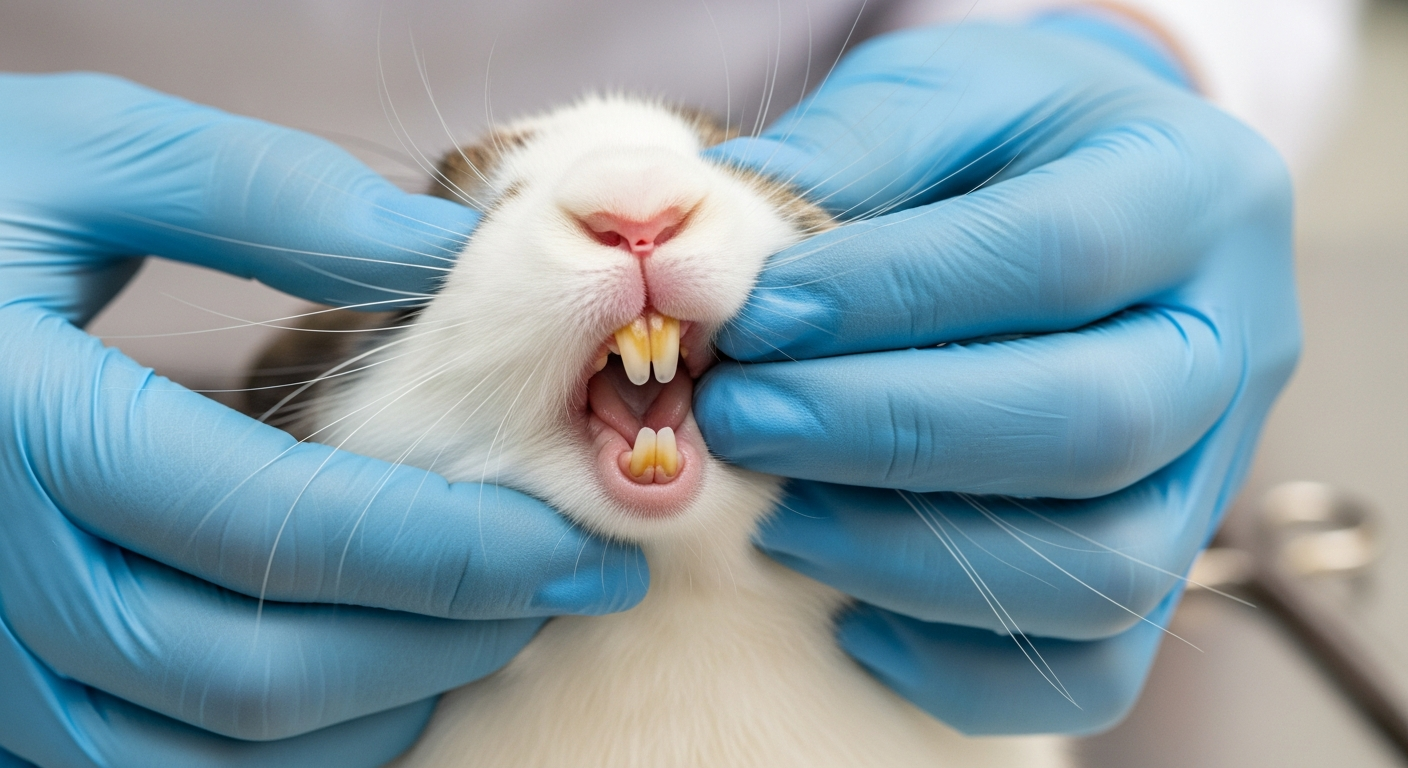
Safe Transport to the Vet
Transporting a rabbit in shock can kill them from stress alone. Do not put them in a cardboard box where they will slide around. You need a secure, hard-sided carrier. I’ve gone through cheap fabric carriers that rabbits chewed through in minutes; now I rely on the MidWest Spree Travel Pet Carrier ↗ because it’s rigid enough to protect them during a frantic car ride, has proper ventilation, and is easy to clean if they have a nervous accident.
Cost Reality Check:
Emergency Vet Visit: $150 - $300 just to walk in the door.
X-Rays: $200 - $400.
Medications/Fluids: $100 - $200.
Total Expectation: Have $500 to $1,000 available on a credit card. It sucks, but it’s the cost of doing business with exotic pets.
Prevention: Building the Fortress
The best way to handle a vet emergency is to avoid it entirely. Most rabbit health issues are man-made, usually by owners feeding them garbage or keeping them in poor conditions. Prevention requires a militant adherence to diet and hygiene.
The Hay Imperative
90% of your rabbit's diet should be grass hay. Not pellets, not carrots, and definitely not those yogurt drops pet stores sell. Hay wears down their constantly growing teeth and provides the long-strand fiber that keeps the gut moving. I stopped buying generic store-brand hay years ago because it was mostly dust; my rabbits maintain better weight and dental health on Oxbow Western Timothy Hay ↗ because the consistent high-fiber strands prevent the dental spurs and stasis issues we just discussed.
Monitoring Output
You need to see the poop to judge the health. Dark, dirty bedding hides the evidence. You need high-contrast, absorbent bedding that controls ammonia (which damages their respiratory system). I use Carefresh Small Pet Bedding ↗ specifically because the white paper pulp makes it instantly obvious if there’s a change in urine color (like blood) or a reduction in fecal pellet size. It costs about $20 a bag, but it buys you early detection.
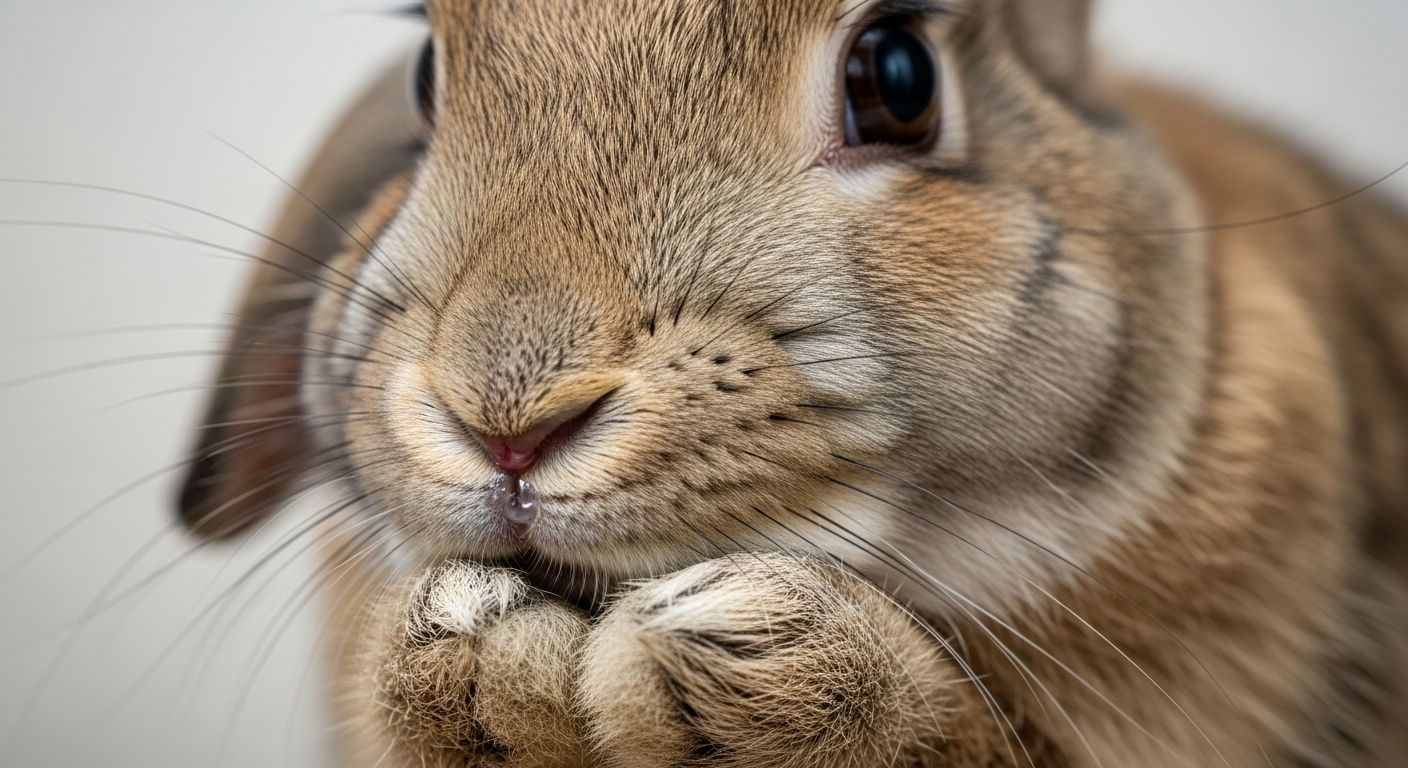
Gut Health Maintenance
Some rabbits are just prone to tummy troubles, usually the genetic disasters like dwarf breeds. For these sensitive guys, dietary supplements can help bridge the gap. I’ve had success stabilizing "frequent flyer" GI stasis rabbits by adding Sherwood Pet Health Digestive Support Tablets ↗ to their routine, as it helps boost the appetite and energy levels during shedding seasons when stasis risk is highest.
Common Mistakes That Kill Rabbits
I’ve made mistakes, and I’ve watched others make them. Here are the errors that usually result in a dead rabbit.
- Mistake #1 - The "Wait and See" Approach: As mentioned, waiting 24 hours to see if they "perk up" is often a death sentence. Their metabolism is too fast. If you are unsure, go to the vet. I’d rather pay $100 to be told my rabbit is just grumpy than save the money and wake up to a corpse.
- Mistake #2 - Treating with Pineapple Juice: There is an old wives' tale that pineapple juice dissolves hairballs in rabbits. It doesn't. The stomach acid of a rabbit is already stronger than the enzymes in pineapple. All you are doing is pumping sugar into a compromised gut, which feeds the bad bacteria (Clostridium) and accelerates the bloating. Stop doing this.
- Mistake #3 - Using Cat/Dog Meds: Never give a rabbit medication meant for a predator. Many common antibiotics for dogs (like Amoxicillin) are fatal to rabbits when given orally. It wipes out their gut flora, causing a toxic enterotoxemia that kills them swiftly. Only use meds prescribed by an exotic vet.
- Mistake #4 - Ignoring Dental Warning Signs: Owners often ignore a wet chin or a rabbit dropping food, thinking it's clumsy. This is dental disease. The spurs on their molars are cutting their tongue. By the time they stop eating, the infection is often deep in the jaw bone. Regular dental checks (every 6-12 months) are cheaper than abscess surgery.
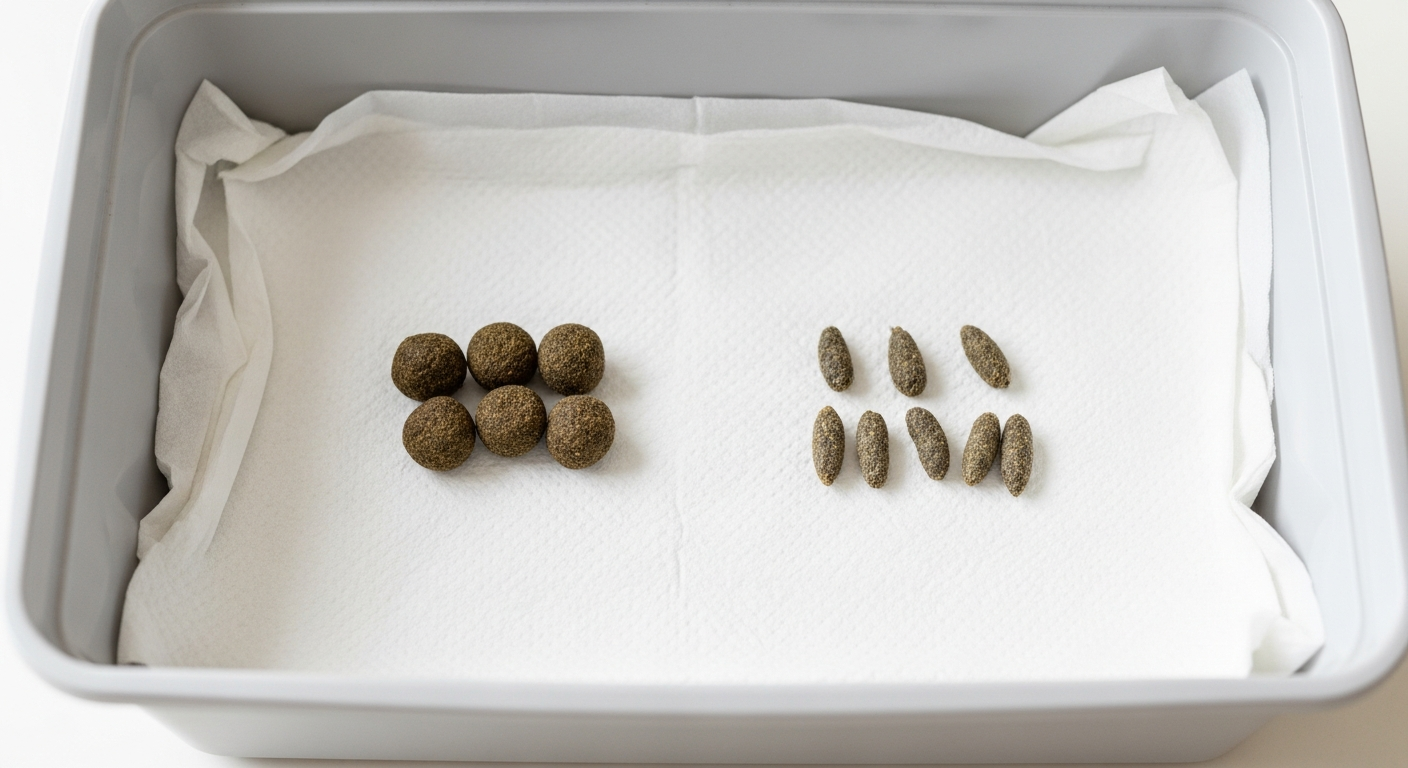
Quick Checklist: 7 signs your rabbit need a vet visit
- Anorexia: Not eating for 8+ hours.
- No Poop: Gut shutdown imminent.
- Lethargy: Hunching in pain, refusing to move.
- Teeth Grinding: Loud, rhythmic crunching (pain signal).
- Hypothermia: Ears feel cold (Shock).
- Head Tilt: Loss of balance/rolling.
- Breathing Issues: Mouth breathing or audible wheezing.
If you see ANY of these, do not wait for morning. Go now.
Perfect rabbit ownership doesn't exist, I've failed enough times to know that. You will eventually miss a sign, or a genetic issue will strike despite your best efforts. The guilt is part of the package.
But armed with realistic expectations and these strategies, you can avoid the negligence-based mistakes that plague most beginner owners. You can't save them from everything, but you can give them a fighting chance.
Start by buying a thermometer and some Critical Care today. It's not glamorous, but looking at a shelf of emergency supplies is a hell of a lot better than looking at an empty cage.
🐾 Frequently Asked Questions
Q How long can a rabbit go without eating before it's an emergency?
Rabbits cannot go long without eating. If your rabbit hasn't eaten in 12 hours, it is a critical emergency (GI Stasis) and requires an immediate vet visit.
Q What is the most common cause of sudden death in rabbits?
GI Stasis (Gastrointestinal Stasis) is one of the most common and deadly issues. It occurs when the gut slows down or stops, often caused by stress, pain, or poor diet.
Q Why is my rabbit grinding its teeth loudly?
While soft purring (tooth purring) indicates happiness, loud grinding often indicates severe pain or dental issues. This is a clear sign your rabbit needs a vet visit.
Q Can a rabbit recover from head tilt?
Yes, with prompt treatment. Head tilt can be caused by E. cuniculi or ear infections. Early diagnosis significantly increases the chances of recovery.
Q How much does an emergency vet visit for a rabbit cost?
Costs vary by location, but emergency visits can range from $100 to $500+ depending on the necessary tests (X-rays, bloodwork) and treatments required.
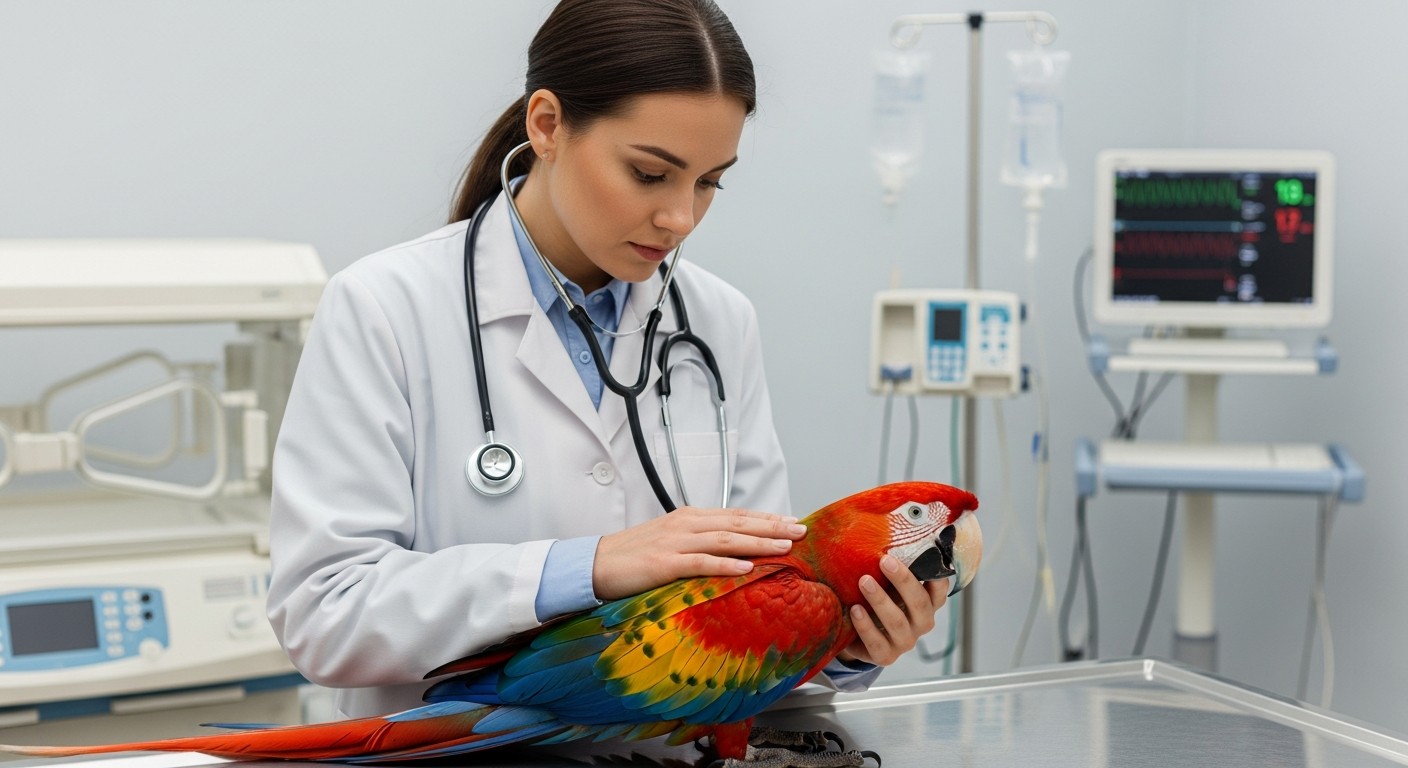
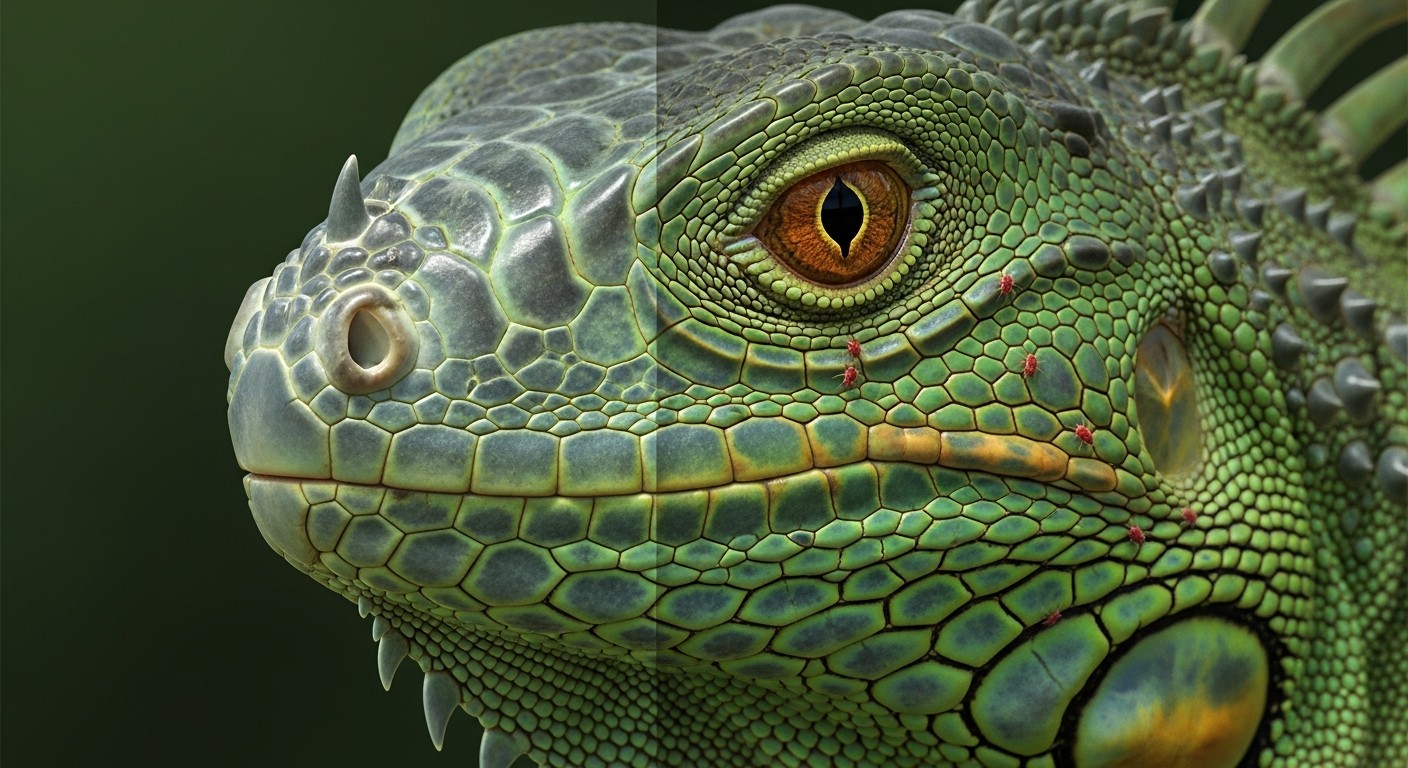
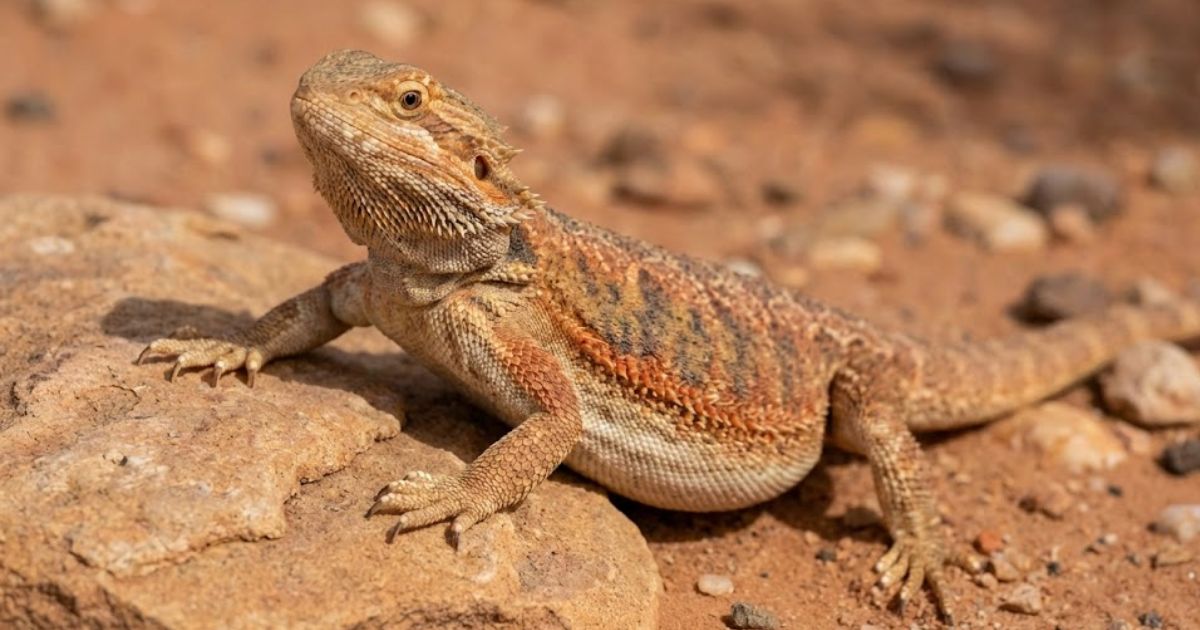
💬 Comments (0)
No comments yet. Be the first to share your thoughts! 👇
✍️ Leave a Reply